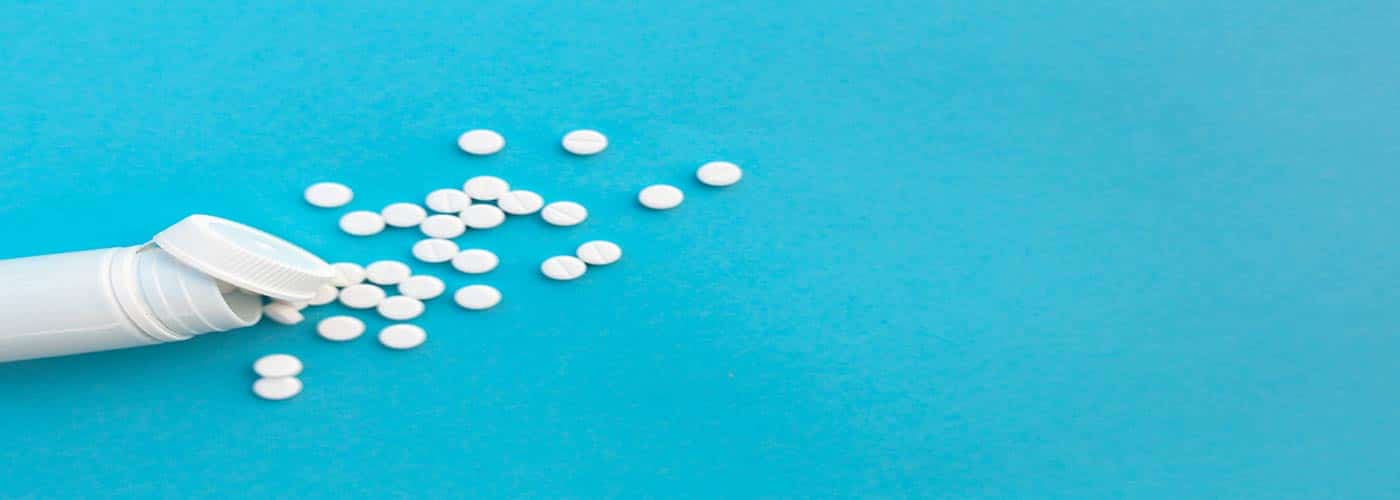Many people have heard of codeine, a potent opioid painkiller that is generally used to treat moderate or severe pain in hospital settings (oftentimes during or directly after medical procedures). Because codeine has a high potential for abuse, it is not generally prescribed as a long-term treatment. Dihydrocodeine is also an opioid painkiller and is also used to treat moderate or severe pain following medical procedures or after an individual sustains a serious physical injury. When Dihydrocodeine is prescribed, it is generally taken orally in the form of a tablet. When it is prescribed to be taken in a medical setting, it is often administered intravenously and injected directly into the muscle.
This medication works by affecting the central nervous system and interfering with pain signals that are traveling from the nerves up to the brain. When taken in a professional medical environment (or when taken exactly as prescribed), this medication is relatively safe to use. However, it can be habit-forming when abused. Those who develop a dihydrocodeine addiction will require professional intervention, and will generally need to enter into a medical detox facility followed by an inpatient treatment program.
At Garden State Treatment Center, we have extensive experience helping men and women of all ages with all varieties and severities of prescription medication abuse. If you or someone you love has been suffering from dihydrocodeine addiction, please do not hesitate to give us a call today.

Signs and Symptoms of Dihydrocodeine Abuse
If you believe that someone close to you has been abusing dihydrocodeine, there are several signs and symptoms to keep an eye out for. These include(but are certainly not limited to):
- Nausea. This is the most common sign of abuse, seeing as it is one of the most common side effects of the chemical substance itself.
- Unexplained drowsiness and fatigue. Those who are abusing this substance will often appear sleep-deprived, and might even nod off regularly.
- Decreased appetite, generally marked by noticeable weight loss.
- Stomach issues (other than nausea), like chronic constipation and severe stomach cramping.
- Skin-related issues, like rashes or persistently itchy skin.
- Slowed breathing/respiratory depression.
- Blurred vision and clammy hands and feet.
- Sleep-related issues, like insomnia or disruptive nightmares.
Those who are struggling with substance abuse of any kind will also experience a wide range of behavioral symptoms and interpersonal consequences.
Some of these consequences might include:
- Problems within interpersonal relationships.
- Problems with a performance at work or school.
- Financial issues, usually related to the high street cost of prescription medications.
- A lack of motivation and a lack of desire to engage in activities that were previously enjoyed.
- Legal issues, which are liable to occur when individuals run out of a preexisting dihydrocodeine prescription and go to great lengths to get their hands on more.
Dihydrocodeine Addiction Recovery
If you or someone you love has been struggling with dihydrocodeine abuse or addiction, there is help available. At Garden State Treatment Center, we focus on emotional, mental, and physical healing, providing men and women of all ages with a comprehensive treatment experience unlike any other.
Over the past several years, prescription drug abuse and addiction have taken the state of New Jersey by storm. In response, numerous drug addiction treatment centers have been popping up across the state. Some of these treatment centers are reputable and have the well-being of their clients at heart, and others do not offer the level of clinical care that those who are struggling with addiction need.
At Garden State Treatment Center, our standards of clinical care are truly unmatched. We believe that anyone is capable of recovery and that everyone who is struggling with an addiction deserves a shot at receiving the care they need. To learn more, give us a call today.
Published on: 2020-07-13
Updated on: 2024-06-27



